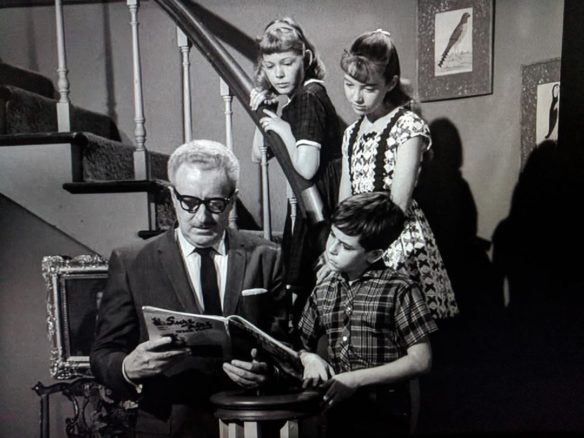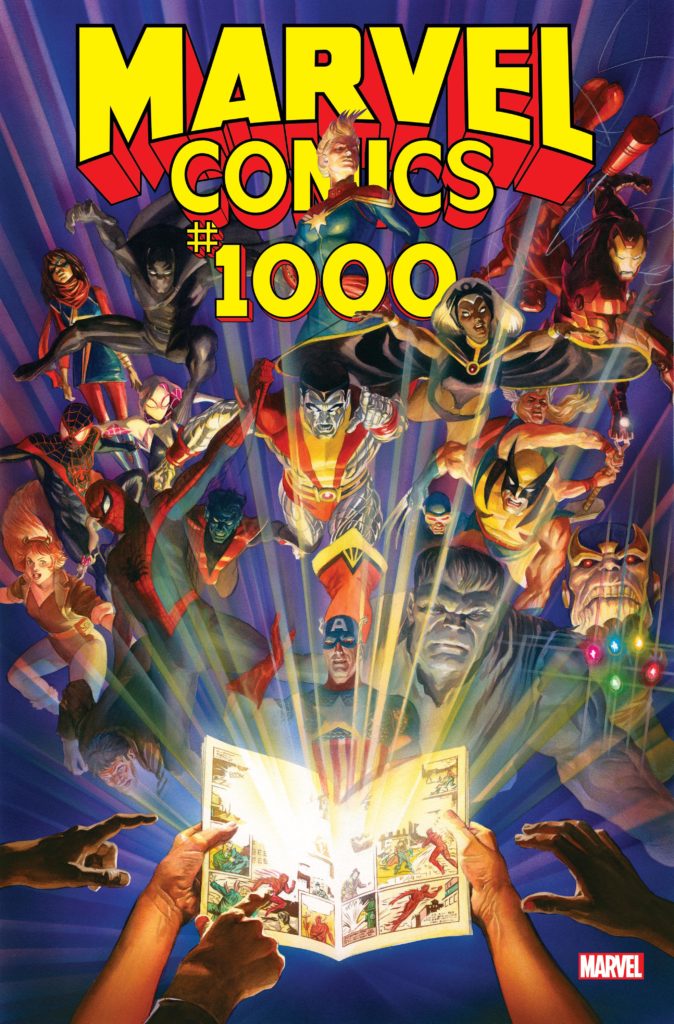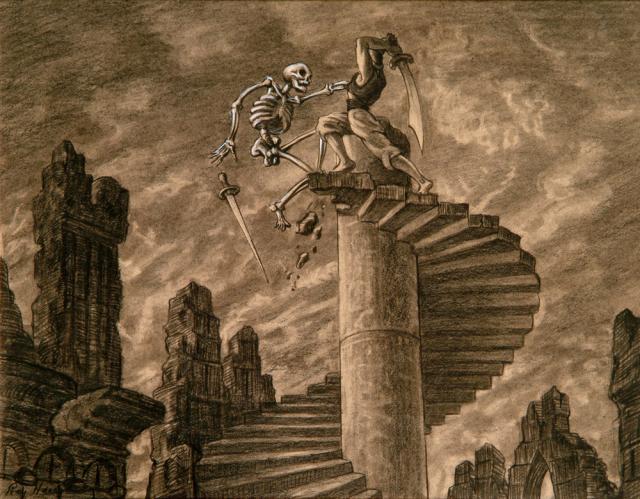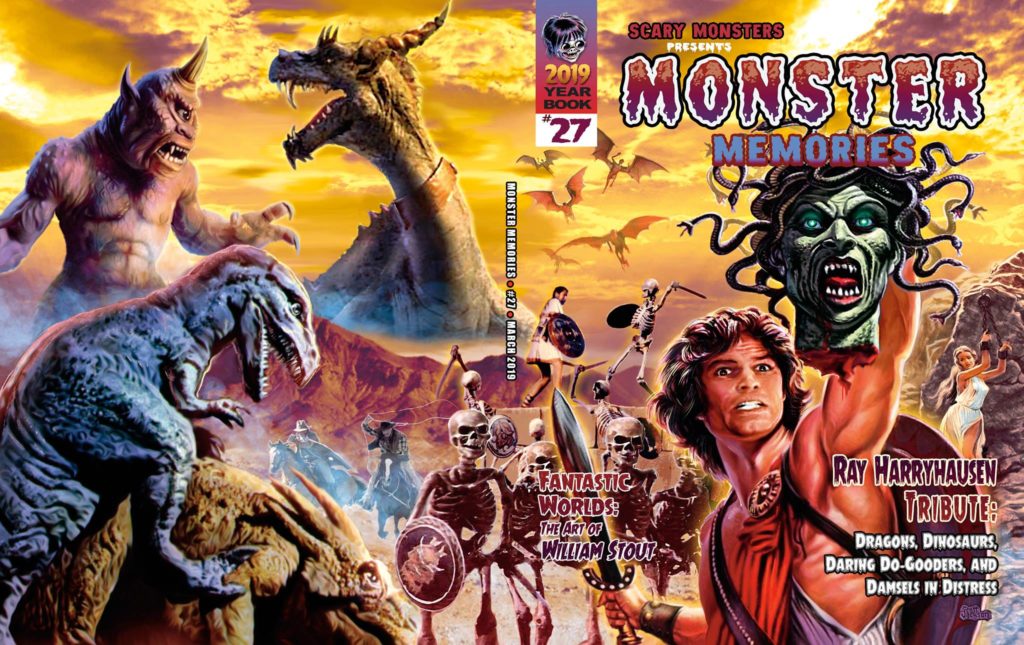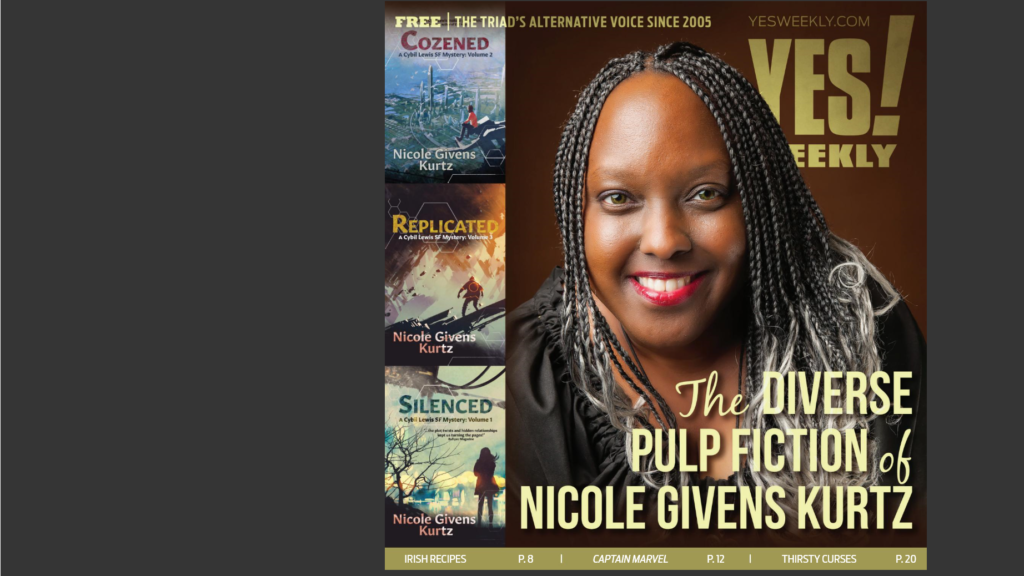(1) ROBOT IN MY I. Louder revisits the Seventies to find out “How Alan Parsons made I Robot, his science fiction masterpiece”.
It was June 1977, and the US was being invaded by robots. Leading the charge were R2-D2, C-3PO and the glass-domed dynamo that stared from the cover of the Alan Parsons Project’s album I Robot.
“It was impeccable timing by George Lucas,” Parsons recalls with a chuckle, “to be so considerate to bring out Star Wars at the same time as our album.” The previous year, Parsons, the audio engineer behind Pink Floyd’s The Dark Side Of The Moon, had turned auteur, mining the works of Edgar Allan Poe on his debut album Tales Of Mystery And Imagination (“It didn’t set the world alight,” Parsons says).
Now, Parsons and his creative partner Eric Woolfson had found literary inspiration in Isaac Asimov’s I, Robot. The sci-fi writer’s morality-based story collection was built around his Three Laws of Robotics – robots must obey, protect and never harm humans.
Woolfson had a “pleasant conversation” with Asimov, who loved the idea of musicalising his book. Unfortunately the author had already sold the rights to a film/TV company. Undeterred, the duo dropped the titular comma, then wrote their own version….
(2) FIRST REDWALL MOVIE. “’Redwall’ Animated Feature & Series Questing to Netflix” – Animation Magazine says it’s in development. My daughter read the whole series.
Brian Jacques’ Redwall fantasy book series will be reimagined in animation thanks to a rights deal between Penguin Random House Children’s U.K. and Netflix: A feature film based on Jacques’ first book in the series, Redwall, is currently in development with writer Patrick McHale (Over the Garden Wall, Guillermo del Toro’s Pinocchio), as well as an event series based on the character of Martin the Warrior.
The deal marks the first time that the film rights to the entire book series have been held by the same company and the first time a feature film of any of Jacques’ works will be made….
(3) SFWA STORYBUNDLE. The Science Fiction Writers of America (SFWA) released its newest StoryBundle, Expansive Futures, a curated collection of books offered at a steeply discounted price. Readers who purchase Expansive Futures can opt to donate part of their purchase price to support SFWA’s ongoing work. The Expansive Futures StoryBundle will be available from February 10 to March 4, here.
Readers choose what price they want to pay for the initial five books. Spending $15 unlocks thirteen more books that they can receive with their purchase. Further details about how StoryBundle operates are available here.
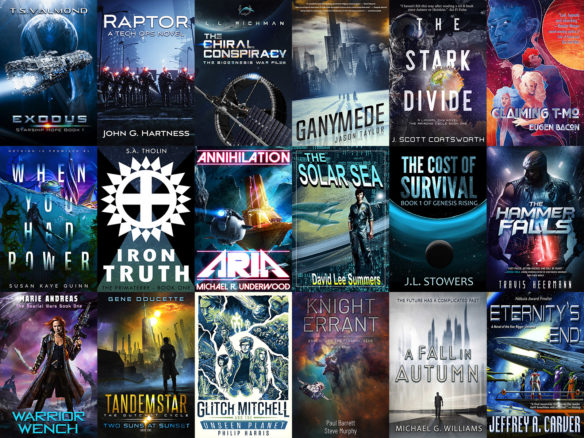
The books in the bundle are:
- Starship Hope: Exodus by T.S. Valmond
- Raptor by John G. Hartness
- The Chiral Conspiracy by L.L. Richman
- Ganymede by Jason Taylor
- The Stark Divide by J. Scott Coatsworth
- Eternity’s End by Jeffrey A. Carver
- When You Had Power by Susan Kaye Quinn
- Annihilation Aria by Michael R. Underwood
- The Solar Sea by David Lee Summers
- The Cost of Survival by J. L. Stowers
- Claiming T-MO by Eugen Bacon
- The Hammer Falls by Travis Heermann
- Warrior Wench by Marie Andreas
- Glitch Mitchell and the Unseen Planet by Philip Harris
- Iron Truth by S.A. Tholin
- Knight Errant by Paul Barrett & Steve Murphy
- A Fall in Autumn by Michael G. Williams
- Two Suns at Sunset by Gene Doucette
(4) COMEDY COMPANION. “Doctor Who’s Chris Chibnall: ‘John Bishop brings a different flavour’”, as he explains to Radio Times.
Doctor Who showrunner Chris Chibnall has praised comedian and actor John Bishop for “bringing a different flavour and a different humour” in his role as companion Dan in series 13 of the BBC sci-fi show.
Bishop was unveiled in a special teaser at the end of New Year’s special Revolution of the Daleks on January 1st and, according to the BBC, his character will become “embroiled in the Doctor’s adventures” in the now-filming series 13, where he’ll “quickly learn there’s more to the Universe(s) than he could ever believe”.
Explaining why he cast Bishop in the new series, Chibnall told Doctor Who Magazine: “I’ve always got my eye out for performers who are loved, and wondering how good they might be as actors. There’s such a great history of performers who start out as comedians transitioning into becoming terrific actors – the best example being Robbie Coltrane in Cracker. John’s somebody I’ve been keeping a beady eye on for years….”
(5) D&D SURPASSED. “Horror RPG Call of Cthulhu is bigger than D&D in Japan” – Dicebreaker delves into the numbers.
Horror roleplaying game Call of Cthulhu has overtaken Dungeons & Dragons’ popularity in Japan, with its success driven by an explosion in interest among younger fans and a growing audience of female players over the last decade….
According to the game’s production studio Arclight, most Call of Cthulhu players in Japan are women aged between 17 and 35. By way of comparison, Wizards of the Coast revealed last year that most Dungeons & Dragons players are under 30, with 40% aged 24 or younger and around a fifth aged between 30 and 34. The majority of D&D players – more than three-fifths – identified as male, with 39% identifying as female. Players who identified as non-binary or “other” comprised less than 1% of the audience.
(6) FOR THIS THEY GET PAID. Fox Meadows lights into Locus reviewer Katharine Coldiron in “Sequel Rights: A Review of Locus Reviews”.
… The absolute gall of any reviewer to start with the second book in a series and then complain that they don’t understand what’s going on, as though this is somehow the fault of the text! It shouldn’t need to be said, but I’ve read The Wolf of Oren-Yaro, a book whose plots and politics are both deep and intricate – as, indeed, one might expect from the first book of a projected series! Of course Coldiron had no idea what was going on. Which begs the question: why, if she had no intention of reading the first book in the series, did Coldiron feel the need to review the sequel – and why, even more pressingly, did Locus decide such an abysmal review was worth publishing in the first place?
With such a terrible starting point, it’s hardly a surprise that the full review – which is not yet available online – gets worse as it goes on. That Coldiron repeatedly gets a main character’s name wrong (Rayyan instead of Rayyal) is a minor sin in comparison to describing a book whose setting is explicitly based on the pre-colonial Philippines as a “richly imagined world [that] resembles England before the Norman Conquest.” That Coldiron somehow made this error this despite the customs, nomenclature and general everything about Villoso’s world is bizarre; to quote a different review, “This world isn’t your pseudo-medieval European world. It’s unequivocally Filipino with inspiration from other sources in Southeast Asia. Not once does Villoso allow you to believe this is anything but a fantasy set in a world inspired by the Philippines.”
Over and over, Coldiron talks about how difficult it is to keep track of various details of a narrative which – and I cannot stress this enough – is the sequel to a book she has not read, without ever stopping to consider that this is her problem rather than the author’s….
After Meadows analyzes several more examples of Coldiron’s reviews, Meadows says:
… If Coldiron was posting her reviews on a private blog, or at any venue less esteemed than Locus, it’s doubtful that I’d have bothered to write this piece; or at the very least, to have written this much. The real problem, though, is not Coldiron herself: it’s that Locus has failed to notice the regularity with which her reviews rebuke POC for things she either praises or lets pass when written by white authors; has allowed the inclusion of racism and microaggressions within her work without apparent editorial oversight; and has now seen nothing wrong with publishing a wildly unprofessional review that blames a sequel volume for the reviewer’s failure to have read the first instalment. It’s maddening and upsetting in equal measure, and at a time when both SFF and the wider literary community are ostensibly trying to do better by marginalised writers, it’s a sign of how thoroughly white privilege still blinds so much of the industry to its failings, even among those who consider themselves well-intentioned.
(7) EIGHT GREAT. Radio Times unveils the “RadioTimes.com Awards 2021 – Vote for the Best Sci-Fi Show”. Voting is open until February 14. The results of the RadioTimes.com Awards will be announced on 7th March 2021.
The choices on the ballot are —
- Devs – BBC
- Doctor Who – BBC
- His Dark Materials – BBC
- Lucifer – Netflix
- The Boys – Amazon
- The Haunting of Bly Manor – Netflix
- The Mandalorian – Disney Plus
- The Umbrella Academy – Netflix
(8) PLENTY OF DOOMS TO GO AROUND. James Davis Nicoll singles out “Five Books Showcasing Humanity’s Talent for Self-Extinction” for Tor.com.
…To put it more simply, perhaps the Great Silence isn’t due to galactic civilizations shunning us, but rather due to the sad probability that no civilizations last long enough to communicate before they find some innovative way to remove themselves from the playing board….
Even the perennially upbeat Clifford Simak can see how it might happen!
City by Clifford Simak (1953)
Humanity at the beginning of the 21st century had so much promise. Famine and energy shortages were vanquished; humans had acquired the basic toolkit to construct a utopia. Yet a handful of centuries later, humans were all but extinct, save for one small, irrelevant city of dreamers in suspended animation. Between those two moments lies an endless cavalcade of good intentions gone horribly awry, each one leading well-intentioned humans towards total extinction.
(9) PRO TIPS. “Interview: Guest Lecturer Melissa Scott” at the Odyssey Writing Workshop Blog.
You have collaborated with several authors. What advice do you have for writers who are interested in collaborating on fiction? What pitfalls are there to avoid?
First, the obligatory practical advice: if you’re going to collaborate, get the terms of the collaboration down in writing. Assume that one or both of you will drop dead, and your heirs will hate each other, and put your arrangements into at least a letter of agreement that all parties involved sign. I have only had to invoke this once, and it was utterly crucial to have the signed letter. It made what could have been a protracted legal mess merely unpleasant and saved the project. Get things in writing. Always.
Beyond that, my most successful collaborations have been with people who shared the same approach toward storytelling. I focus on story and character over theme or message; I get excited about my work and can spend hours making notes on the possible plot(s) and figuring out the connections among the characters and the ways they work in their worlds. I work best with people who share that interest in story and character, and with people who are also enthusiasts. (For me, there’s nothing better than getting an email from a collaborator with six links to videos of reconstructed Renaissance transitional fencing styles to illustrate a point. Your mileage may vary.) It’s basically a matter of understanding your own working style and trying to find a collaborator whose style meshes well with yours.
(10) ONE-MINUTE READ. “‘I basically had a midlife crisis’: Author N.K. Jemisin explains why it’s never too late to quit your day job” at Fast Company.
I didn’t try to publish anything until I was 30, when I basically had a midlife crisis. I was in a city I didn’t like, had not reached various milestones I wanted to reach, and was in student loan debt up to my eyeballs…
(11) MEMORY LANE.
- 2001 — Twenty years ago, China Miéville ‘s Perdido Street Station wins the Arthur C. Clarke Award. The other nominees that year were Octavia E. Butler’s Parable of the Talents, Mary Gentle’s Ash: A Secret History, Ken MacLeod’s Cosmonaut Keep, Alastair Reynolds’s Revelation Space and Adam Roberts’ Salt. Perdido Street Station would also win a BFA and be nominated for the BSFA, Otherwise and Nebula Awards. (CE)
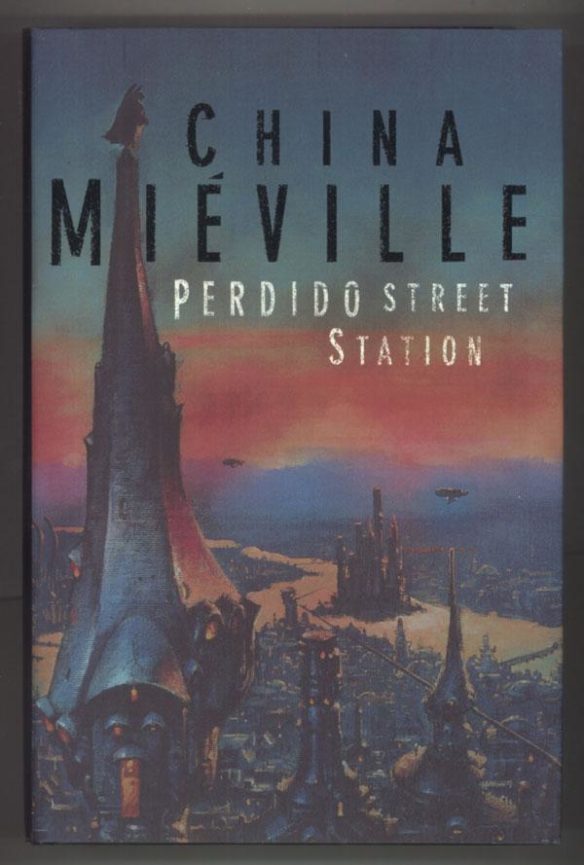
(12) TODAY’S BIRTHDAYS.
[Compiled by Cat Eldridge and John Hertz.]
- Born February 10, 1904 – Lurton Blassingame. Literary agent to John Barth, Robert A. Heinlein, Frank Herbert, William F. Nolan. More letters to him in Grumbles from the Grave than anyone else; some from him too. Loved fishing, hunting, playing bridge, watching opera and ballet. After half a century his firm sold to Eleanor Wood’s Spectrum Literary Agency, 1979. His wife died the next year. His papers are at Univ. Oregon. (Died 1988) [JH]
- Born February 10, 1906 — Lon Chaney Jr. I certainly best remember him as playing Larry Talbot in The Wolf Man but he has a lot of other roles as well: The Ghost of Frankenstein as The Monster (look, correct billing!), The Mummy’s Tomb as The Mummy Kharis or Son of Dracula as Count Dracula, he played all the great monsters, often multiple times. (Died 1973.) (CE)
- Born February 10, 1920 — Alex Comfort. No smirking please as we’re supposed to be adults here. Yes he’s the author of The Joy of Sex but he did do some decidedly odd genre work as well. Clute at EoSF notes that his “first genuine sf novel, Come Out to Play (1961), is a near-future Satire on scientism narrated by a smug sexologist, whose Invention – a potent sexual disinhibitor jokingly called 3-blindmycin (see Drugs) – is accidentally released over Buckingham Palace at the Slingshot Ending, presumably causing the English to act differently than before.” ISFDB lists only a few genre works by him but EoSF has a generous lists of works. (Died 2000.) (CE)
- Born February 10, 1920 – Robert P. Mills. Edited The Magazine of Fantasy & Science Fiction (managing editor since F&SF began; editor, after Tony Boucher; succeeded in turn by Avram Davidson) and Venture. Ten years managing editor of Ellery Queen’s Mystery Magazine. Five F&SF anthologies: Best of F&SF 9th, 10th, 11th Series; A Decade of F&SF; Twenty Years of F&SF (with Edward Ferman). Also The Worlds of SF. Three Hugos (Best Magazine to F&SF under RPM). One short story. After F&SF, a literary agent; sold firm to Richard Curtis, 1984. Papers at Univ. Texas. (Died 1986) [JH]
- Born February 10, 1934 – Fleur Adcock, age 87. Queen’s Gold Medal for Poetry. Officer of the Most Excellent Order of the British Empire. Companion of the New Zealand Order of Merit. Fellow, Royal Soc. Literature. Cholmondely Award. One short story for us. A score of poetry collections; tr. The Virgin and the Nightingale (medieval Latin poems); ed. (with Jacqueline Simms) The Oxford Book of Creatures (verse & prose). [JH]
- Born February 10, 1935 — Terrance Dicks. He had a long association with Doctor Who, working as a writer and also serving as the programme’s script editor from 1968 to 1974. He also wrote many of its scripts including The War Games which ended the Second Doctor’s reign and The Five Doctors, produced for the 20th year celebration of the program. He also wrote novelization of more than sixty of the Doctor Who shows. Yes sixty! Prior to working on this series, he wrote four episodes of The Avengers and after this show he wrote a single episode of Space: 1999 and likewise for Moonbase 3, a very short lived BBC series that I’ve never heard of. (Died 2019.) (CE)
- Born February 10, 1953 — John Shirley, 68. I’m not going to even attempt a complete précis of his career. I read and much enjoyed his first novel City Come A-Walkin and oddly enough his Grimm: The Icy Touch is damn good too in way many of those sharecropped novels aren’t. I see that to my surprise he wrote a episode of Deep Space Nine, “Visionary” and also wrote three episodes of the ‘12 series of Teenage Mutant Ninja Turtles. (CE)
- Born February 10, 1953 – Tom Whitmore, age 68. Three decades a partner in “The Other Change of Hobbit” bookshop. Chaired Potlatch 2, SMOFcon 2 (SMOF is Secret Master Of Fandom, as Bruce Pelz said a joke-nonjoke-joke); co-chaired ConJosé the 60th Worldcon, Fan Guest of Honor at Denvention 3 the 66th; also Fan GoH at Westercon 36, Loscon XIV, Boskone 26 (as Special Guest, Boskone has no Fan GoH; anyway, see Debbie Notkin’s appreciation), Capclave 2006. Book reviews in Locus. Morris dancer. [JH]
- Born February 10, 1967 — Laura Dern, 54. I’m going to note she’s in David Lynch’s Blue Velvet as Sandy Williams which is not genre but which is one fucking weird film. Jurassic Park where she is Dr. Ellie Sattler is her first SF film followed by Jurassic Park III and a name change to Dr. Ellie Degler. Such are the things movie trivia is made of. Star Wars: The Last Jedi has her showing as Vice Admiral Amilyn Holdo. I think her first genre appearance was on Shelley Duvall’s Nightmare Classic. (CE)
- Born February 10, 1970 – Robert Shearman, age 51. Fourscore short stories. Two of them Doctor Who; ed. The Shooting Scripts (with Paul Cornell, Russell Davis, Mark Gatiss); Rob and Tony’s Marathon Watch of “Doctor Who” vols. 1-2 (with Toby Hadoke). Interviewed in Nightmare. [JH]
- Born February 10, 1976 — Keeley Hawes, 45. Ms Delphox/Madame Karabraxos in the most excellent Twelth Doctor story “Time Heist”. It wasn’t her first genre role as that would’ve been Tamara in that incredibly awful Avengers film. She also played Zoe Reynolds in MI5 which is at least genre adjacent given where the story went. She has also provided the voice of Lara Croft in a series of Tomb Raider video games. (CE)
- Born February 10, 1987 – Cody Martin, age 34. Four novels, three shorter stories, with Mercedes Lackey (whose name, incidentally, means servant of mercy); five novels and a shorter story in the Secret World Chronicles (which is also a podcast) with Lackey, Veronica Giguere, Dennis Lee, Steve Libby. Eagle Scout. Gamer. “After I started writing him, John Murdock drifted away from me…. It surprised me, pleasantly.” [JH]
(13) COMICS SECTION.
- The Flying McCoys raises the question – is Dracula busted?
(14) MILESTONES. In “The Animation That Changed Cinema” on YouTube, Lewis Bond and Luiza Liz Bond look at how great artists like Lotte Reininger, Jan Svankmajer, and Brad Bird changed and improved animation.
(15) WORLD OF TOMORROW KICKSTARTER. Don Hertzfeldt’s Kickstarter to fund “World of Tomorrow: The First Three Episodes” on Blu-ray has raised $218,446 of its $30,000 goal in the first two days. People who pledge $20 get a copy. There are incentives for higher pledges.
WHAT WILL BE ON THE NEW BLU-RAY?
- the first three episodes of the series: “world of tomorrow”, “world of tomorrow episode two: the burden of other people’s thoughts”, and “world of tomorrow episode three: the absent destinations of david prime”
- “intro”, a short cartoon that was created for the 2017 tour and has only ever been seen in theaters
- a 32 page booklet, including brand new liner notes for all the titles
- additional bells and whistles TBD
(16) HOW THE WEST WAS WEIRD. “Wynonna Earp: New trailer shows her back on the hunt in Purgatory”: SYFY Wire sets the frame:
…“All I want is to stop feeling guilty for what I am, when what I am is necessary,” Wynonna, played by Melanie Scrofano, says at the beginning of the clip. The trailer then goes on to show Wynonna on a bit of a bender — killing demons, getting drunk, hooking up, and passing out, all with Peacemaker back by her side.
(17) DERAILED BY DISNEY DEAL. Disney bought the studio, Blue Sky, that was making the Nimona cartoon (and other things) and has fired all the staff on Nimona and other projects. “Nimona Movie Cancelled by Disney Less Than a Year Before Release” – Comicbook.com has the story.
Fans of She-Ra and the Princesses of Power creator Noelle Stevenson and her original comics were saddened today when news came that Disney is shutting down the former 20th Century Fox animation studio Blue Sky and with it cancelling their feature film adaptation of Stevenson’s Nimona. The movie was less than a year away and had been in development since around 2015, with a release date already scheduled for release on January 14th of 2022. According to The Hollywood Reporter’s Borys Kit, sources indicated that the movie was “about 75% complete” and theorized that perhaps another studio could step in and finish the project.
… This marks the latest project that was in development at Fox or one of its subsidiaries that had fans excited and was subsequently cancelled by Disney….
(18) WOULD YOU LIKE FRIES PRINTED WITH THAT? In the Washington Post, Laura Reiley says that Israeli firm Aleph Farms says it has a process for 3-D printing steaks, and discussed other companies that are coming up with “cultivated: meat and fish. “The world’s first lab-grown rib-eye prompts questions about how cultivated meat will be regulated”.
… Aleph Farms’ new 3-D bioprinting technology— which uses living animal cells as opposed to plant-based alternatives — allows for premium whole-muscle cuts to come to market, broadening the scope of alt-meat in what is expected to be a rich area of expansion for food companies.
Several other companies are sprinting to capture what is expected to be a robust appetite for what is often called “cultivated meat.” San Diego-based BlueNalu has announced its intent to bring cell-based seafood products to market in the second half of this year; Israel-based Future Meat Technologies and Dutch companies Meatable and Mosa Meat aim to have cultivated meat products in the market by 2022, each with proprietary methods of growing meat tissues from punch biopsies from live or slaughtered animals.
But the lack of a regulatory framework could stymie the companies’ race to market. In December, Israeli Prime Minister Benjamin Netanyahu became the world’s first head of state to eat cultivated meat, and that same month Singapore became the first country in the world to grant regulatory approval for the sale of cultivated meat. It remains unclear when other countries will follow suit. In the United States, the Food and Drug Administration has not set a date for when it will rule on the matter….
(19) AREN’T YOU SHORT FOR AN IMPERIAL WALKER? SYFY Wire shows “Walking car proven possible by Hyundai TIGER concept”.
It’s probably safe to say that Hyundai is betting big on the future of transportation. Last week, we got wind of their plan to build the world’s smallest airport for flying cars, and then yesterday, the South Korean company just went even more futuristic by presenting its “walking car” concept, TIGER, aka the transforming intelligent ground excursion robot.
Branded as the company’s first uncrewed ultimate mobility vehicle (UMV), TIGER is meant to transform from a four-wheel drive vehicle to a four-legged walking machine….
[Thanks to John King Tarpinian, N., Cat Eldridge, Michael Toman, Betsy Hanes Perry, James Davis Nicoll, John Hertz, JJ, Andrew Porter, Mike Kennedy, and Martin Morse Wooster for some of these stories. Title credit goes to File 770 contributing editor of the day Andrew (not Werdna).]



